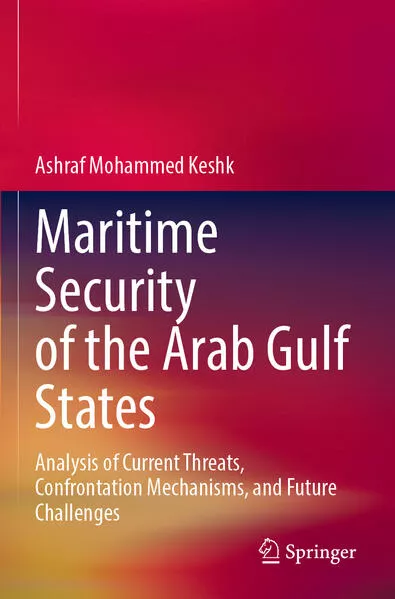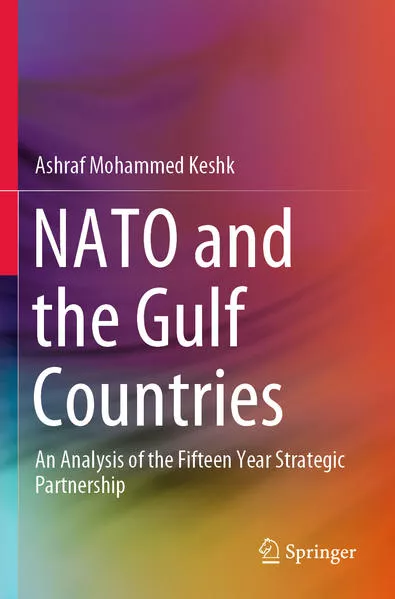
- Publikationen ca: 4
- Fragen & Antworten
Ashraf Mohammed Keshk
Ashraf Mohammed Keshk is Research Fellow and Director of International & Strategic Studies with Derasat. His research specializes in Arab Gulf security, particularly regional and international alliances. He is also an academic and previously a research fellow at the NATO Defence College in Rome, where he obtained a Diploma in Defence Studies, specializing in regional and Gulf security. Dr. Keshk has authored several books, including The Evolution of Regional Security in the Gulf: A Study on the Impact of NATO Strategy (1st edition 2012, 2nd edition 2015), Western Policies towards Arab Gulf Security (2014), and published numerous studies in scientific journals at the regional and international levels in Arabic, English, and Italian. He has participated in a number of international conferences on Arab Gulf security and NATO policies, and he obtained his B.Sc. in Political Science and his Ph.D. (distinction) from Cairo University, which focused on NATO’s strategy towards Arab Gulf security. He is a subject matter expert in crisis management and has been teaching higher education students at security academies, in addition to providing training courses to entities inside and outside the Bahrain on both crisis and disaster management.
Maritime Security of the Arab Gulf States
This book outlines the state of play in maritime security in the Gulf and provides a historical perspective to current issues while also surveying different mechanisms for Gulf maritime security, both at the collective and individual state levels.The book addresses a number of questions related to maritime security in the Gulf States, such as what are the main threats facing maritime security? Do the Arab Gulf States have the necessary naval capabilities to confront these maritime security threats? What are the efforts that the Arab Gulf States have made in order to maintain their maritime security? What are the regional frameworks through which the Arab Gulf States can address maritime security threats? And what are the obstacles hindering the Arab Gulf States’ efforts to maintain maritime security?This book would be a valuable read for Gulf Cooperation Council States, the ministries of defense in the Arabian Gulf countries, security institutions, the Arabian Gulf countries’ military academies, thinks tanks and universities in the six Gulf States, Western think thanks concerned with the Arabian Gulf region, and scholars specializing in Arabian Gulf countries.
Maritime Security of the Arab Gulf States
This book outlines the state of play in maritime security in the Gulf and provides a historical perspective to current issues while also surveying different mechanisms for Gulf maritime security, both at the collective and individual state levels.The book addresses a number of questions related to maritime security in the Gulf States, such as what are the main threats facing maritime security? Do the Arab Gulf States have the necessary naval capabilities to confront these maritime security threats? What are the efforts that the Arab Gulf States have made in order to maintain their maritime security? What are the regional frameworks through which the Arab Gulf States can address maritime security threats? And what are the obstacles hindering the Arab Gulf States’ efforts to maintain maritime security?This book would be a valuable read for Gulf Cooperation Council States, the ministries of defense in the Arabian Gulf countries, security institutions, the Arabian Gulf countries’ military academies, thinks tanks and universities in the six Gulf States, Western think thanks concerned with the Arabian Gulf region, and scholars specializing in Arabian Gulf countries.
Maritime Security of the Arab Gulf States
This book outlines the state of play in maritime security in the Gulf and provides a historical perspective to current issues while also surveying different mechanisms for Gulf maritime security, both at the collective and individual state levels.The book addresses a number of questions related to maritime security in the Gulf States, such as what are the main threats facing maritime security? Do the Arab Gulf States have the necessary naval capabilities to confront these maritime security threats? What are the efforts that the Arab Gulf States have made in order to maintain their maritime security? What are the regional frameworks through which the Arab Gulf States can address maritime security threats? And what are the obstacles hindering the Arab Gulf States’ efforts to maintain maritime security?This book would be a valuable read for Gulf Cooperation Council States, the ministries of defense in the Arabian Gulf countries, security institutions, the Arabian Gulf countries’ military academies, thinks tanks and universities in the six Gulf States, Western think thanks concerned with the Arabian Gulf region, and scholars specializing in Arabian Gulf countries.
NATO and the Gulf Countries
This book analyses the fifteen-year-long strategic partnership between NATO and the Gulf Cooperation Council (GCC). The book goes on to address several key questions raised in the year since the inception of the Istanbul Cooperation Initiative (ICI): Is the initiative a framework for consultation on Gulf and regional security issues? Is it a security initiative or a defensive one? Even more importantly, how was this initiative developed? Was there a mutual eagerness, on the part of NATO or that of the four Gulf States, to develop it? Is it possible for the initiative to be redeveloped and have other dimensions and outlooks in the future? Throughout the book, the author provides a comprehensive understanding and assessment of NATO's policies and their impact on the security of the Arab Gulf region.



